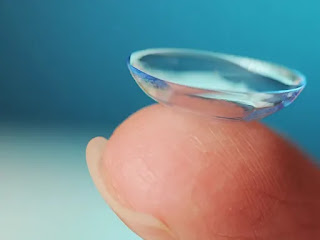EAT YOUR WAY TO BETTER EYE HEALTH
Eat Your Way to Better Eye Health
If you’re like most people starting the new year, you may have made a resolution to eat healthier in 2023. Whether you’re starting to fall off the wagon or holding strong, it’s never too late to start eating well. There are several vitamins and nutrients specific to the health of the eyes, and chances are, what is good for the eyes is also good for your overall health.
1. Vitamin A
- Required for the formation of rhodopsin, a pigment found in the retina that allows us to see in low-light
conditions. Deficiency could cause "night blindness" due to impaired dark adaptation.
- Supports healthy functioning of surfaces in the eye like the cornea and conjunctiva. Deficiency could lead to
dryness and corneal scarring.
- Good sources: orange-colored fruit and vegetables like carrots, sweet potatoes, cantaloupe, and apricots. Eggs
and yogurt. Green leafy vegetables and liver.
2. Vitamin C
- Neutralizes damage from UV rays and tobacco smoke that can lead to progression of cataracts and macular
degeneration.
- Promotes healthy blood vessels like the tiny capillaries that bring oxygen and nutrients to the retina.
- Good sources: citrus fruits, kiwi, blueberries, strawberries, peaches, red bell peppers, and tomatoes.
3. Vitamin E
- Antioxidant like vitamin C that protects tissues in the eye from damage and the development of cataracts.
- Good sources: avocados, almonds, sunflower seeds, and olive oil.
4. Omega-3 Fatty Acids
- Protects the retina from damage and degradation.
- Reduces inflammation in the eye and improves function of the oil-producing glands in the eyelid needed to
produce healthy tears and lubrication that can ease dry eye symptoms.
- Good sources: fish like salmon, tuna, sardines, halibut, and trout. Nuts and seeds like walnuts, flaxseed, and
chia seeds.
5. Lutein and Zeaxanthin
- Occurs naturally in the macula, the part of the retina used for central and detailed vision.
- Neutralizes damage from UV rays and filters blue light from reaching the underlying structures in the retina that
could lead to macular degeneration.
- Good sources: green leafy vegetables like kale, spinach, romaine lettuce, broccoli, and brussels sprouts. Eggs
and squash.
6. Zinc
- Helps transport vitamin A from the liver to the retina for production of melanin, a pigment in the eye that protects
against UV rays and lowers your risk for macular degeneration.
- Good sources: kidney beans, lima beans, black-eyed peas; oysters, lean red meat and poultry.
Reducing blood pressure (i.e., limiting foods high in sodium) and managing blood sugar can also lower the risk of eye disease.
Feeling hungry now?! Hope this helps you stay laser-focused on the rest of your goals for 2023.


Enhance your eye health with nutrient-rich foods! Key vitamins like A, C, and E, along with omega-3s and minerals like zinc, bolster eye function and guard against conditions like cataracts and macular degeneration. Incorporate colorful fruits, veggies, and omega-3 sources into your diet. For personalized eye care and guidance on maintaining optimal vision, trust SB Optical's expert optometric services. Prioritize your vision and overall well-being with SB Optical today!
ReplyDelete